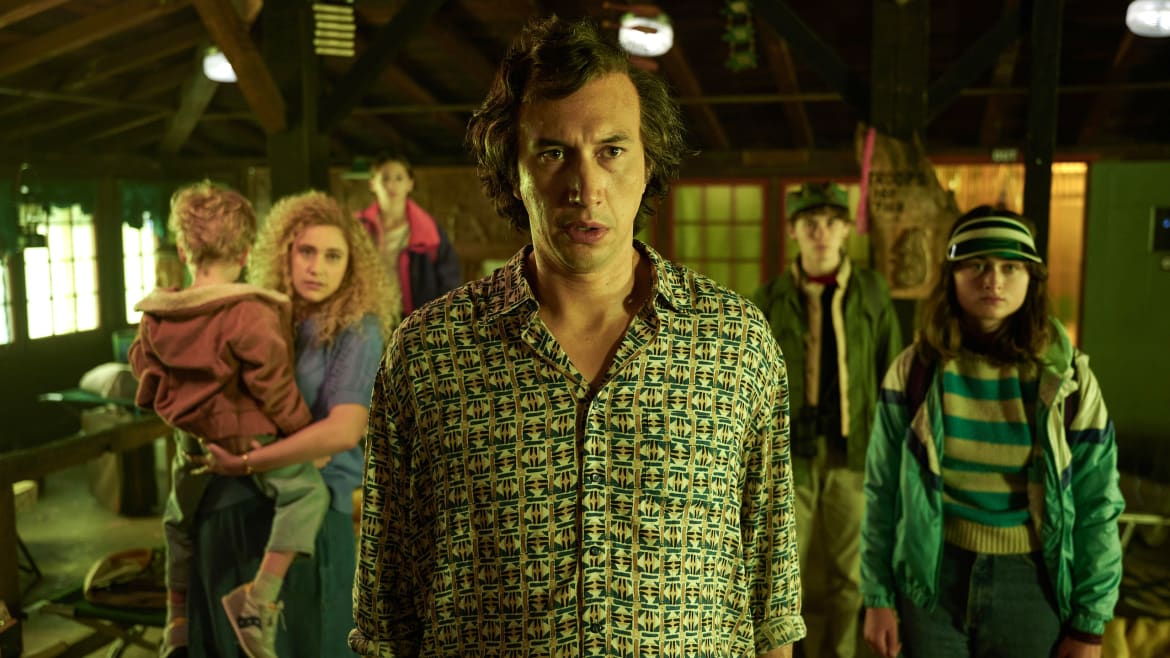Wilson Webb/Netflix
You’ll want to stay through the end credits of White Noise, filmmaker Noah Baumbach’s adaptation of Don DeLillo’s much-ballyhooed novel exploring the torpefying effects of mass consumerism, technology, and medical quackery on the American family. It is a sequence straight out of David Byrne’s Broadway romp American Utopia, bursting with ingenuity and playfulness, set to a catchy new tune by LCD Soundsystem. It also says more about how in thrall we are to consumption than the rest of the movie combined.
White Noise is told from the perspective of Jack Gladney (Adam Driver), chairman of the Hitler Studies department at fictional College-on-the-Hill. The year is 1984, and we are 16 years into his tenure—one marked by adulation from his fellow colleagues and students alike. Gladney is an imposing figure (see: Driver), dazzling his students with histrionic lectures and stalking the hallways in a black robe, though his propensity for hiding his hands underneath it, and cloaking himself in polarized sunglasses, suggests a lingering insecurity. His wife is Babette (Greta Gerwig), a seemingly content mother presiding over a mixed brood of children and stepchildren with an absolutely glorious head of curly blonde hair. Her secret addiction to a mystery prescription pill called Dylar, however, indicates that there’s anxiety bubbling beneath her cheery surface.
This opening chapter sees Baumbach in familiar territory: dismantling the pretensions of academia, where professors luxuriate in language in ways that feel masturbatory to anyone outside their finely constructed bubble. It opens on Professor Murray Siskind (Don Cheadle, outstanding) gushing over an orgiastic montage of movie car crashes, casting them as a paragon of American “optimism” and urging his acolytes to “look past the violence”—laughably absurd advice, of course. An early highlight comes via dueling lectures from Gladney and Siskind juxtaposing the lives of Elvis and Hitler, positing that their mommy issues led to a hunger for mass adoration. Parallels will inevitably be drawn between Gladney and Bernard Berkman, the teacher and literary dinosaur embodied by Jeff Daniels in The Squid and the Whale whose ego is only outmatched by his love for the Knicks, even if Gladney is far less of a cultural Luddite (Berkman was loosely based on Baumbach’s own father, a fiction writer who later taught at Brooklyn College).

